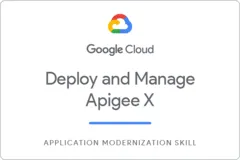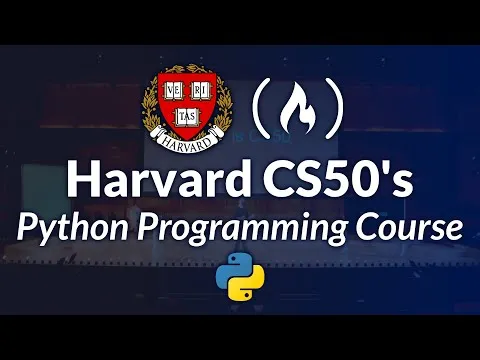
Symfony 4 Fundamentals: Services Config & Environments 
Gain an introduction to Symfony 4 Fundamentals: Services Config & Environments ▼
ADVERTISEMENT
Course Feature
![]() Cost:
Cost:
Paid
![]() Provider:
Provider:
SymfonyCasts
![]() Certificate:
Certificate:
Paid Certification
![]() Language:
Language:
English
![]() Start Date:
Start Date:
On-Demand
Course Overview
❗The content presented here is sourced directly from SymfonyCasts platform. For comprehensive course details, including enrollment information, simply click on the 'Go to class' link on our website.
Updated in [May 19th, 2023]
This course provides an overview of Symfony 4 fundamentals, including services config and environments. Participants will learn how to install external packages, find and use services, configure bundles, and understand the magical configuration loading mechanism. Additionally, they will gain an understanding of service parameters, environment variables, and the MakerBundle. By the end of the course, participants will have a better understanding of how their app works under-the-hood and the fundamentals behind any feature in Symfony.
[Applications]
After completing this course, users should be able to apply the knowledge they have gained to their own Symfony projects. They should be able to install external packages, find and use services, configure bundles, and understand the configuration loading mechanism. Additionally, they should be able to use environment variables and the MakerBundle to create their own services.
[Career Paths]
1. Symfony Developer: Symfony developers are responsible for developing and maintaining web applications using the Symfony framework. They must have a strong understanding of the framework and be able to write code that is efficient and secure. As the Symfony framework continues to evolve, developers must stay up to date with the latest trends and technologies.
2. Web Application Architect: Web application architects are responsible for designing and developing web applications using the Symfony framework. They must have a strong understanding of the framework and be able to design and develop applications that are efficient and secure. As the Symfony framework continues to evolve, architects must stay up to date with the latest trends and technologies.
3. DevOps Engineer: DevOps engineers are responsible for managing and maintaining web applications using the Symfony framework. They must have a strong understanding of the framework and be able to deploy and maintain applications that are efficient and secure. As the Symfony framework continues to evolve, DevOps engineers must stay up to date with the latest trends and technologies.
4. Software Engineer: Software engineers are responsible for developing and maintaining software applications using the Symfony framework. They must have a strong understanding of the framework and be able to write code that is efficient and secure. As the Symfony framework continues to evolve, software engineers must stay up to date with the latest trends and technologies.
[Education Paths]
1. Bachelor of Science in Computer Science: This degree path focuses on the fundamentals of computer science, including programming, software engineering, and computer architecture. It also covers topics such as artificial intelligence, machine learning, and data science. As technology continues to evolve, this degree path is becoming increasingly important for those looking to stay ahead of the curve.
2. Master of Science in Software Engineering: This degree path focuses on the development of software applications and systems. It covers topics such as software design, software architecture, software testing, and software development methodologies. With the increasing demand for software engineers, this degree path is becoming increasingly popular.
3. Master of Science in Data Science: This degree path focuses on the analysis and interpretation of data. It covers topics such as data mining, machine learning, and predictive analytics. As data becomes increasingly important in the modern world, this degree path is becoming increasingly important for those looking to stay ahead of the curve.
4. Doctor of Philosophy in Computer Science: This degree path focuses on advanced topics in computer science, such as artificial intelligence, machine learning, and data science. It also covers topics such as software engineering, computer architecture, and software development methodologies. This degree path is ideal for those looking to pursue a career in research or academia.
Course Provider

Provider SymfonyCasts's Stats at AZClass
Discussion and Reviews
0.0 (Based on 0 reviews)
Explore Similar Online Courses

Deploy and Manage Apigee X

Angular: The Big Picture

RDBMS PostgreSQL

Intro To PostgreSQL Databases With PgAdmin For Beginners

PostgreSQL: Client Applications

Mastering SQL using Postgresql

Database Design and Basic SQL in PostgreSQL

PostgreSQL: Advanced Queries

Spatial SQL with Postgres : A language for geographers

Learn SQL Using PostgreSQL: From Zero to Hero

PostgreSQL Essential Training

Harvard CS50's Introduction to Programming with Python : Full University Course
 Related Categories
Related Categories
 Popular Providers
Popular Providers
Quiz
 Submitted Sucessfully
Submitted Sucessfully
1. What is the MakerBundle?
2. What is the purpose of the Symfony Environments?
3. What is the magical configuration loading mechanism?


Start your review of Symfony 4 Fundamentals: Services Config & Environments